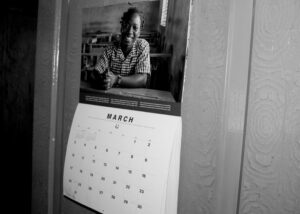That’s not who we are . . . as Mennonites or Muslims
Re: “A not-so-pure depiction of Mennonites,” Feb. 13, page 20.
I read with interest the various online responses by Mennonites concerned about how Mennonites are depicted in the CBC drama series Pure.
I spent several years working in the tour program in the Elmira district, explaining Mennonites to curious tourists who typically came with the stereotype that all Mennonites get around by horse and buggy. Therefore, it does not surprise me that the CBC producers felt they needed to have horse and buggies on the set so the audience can immediately identify that the story is about “Mennonites.”
Let me add another dimension to this conversation. As Anabaptist/Mennonites, we have a long history of being misunderstood and often maligned. Consider the early Anabaptist peasant revolts encouraged by Thomas Müntzer. Consequently, all Anabaptists were tarred with the same brush as “Müntzerites.” And the rest of the group constantly disavowed this link and said, “We are not Müntzerites, those violent people. We are Mennonites, a people of peace.”
So from the outset we felt the need to explain ourselves to our neighbours and to the authorities. And today we wish to distance ourselves from that small group of Old Colony “Mexican” Mennonites who engaged in drug running.
Having drawn a straight line back to our Anabaptist beginnings, let me draw another line to form a triangle. Our Muslim neighbours, too, feel much misunderstood and often maligned as “terrorists” or belonging to Islamic State. They keep on saying, “That’s not who we are as true Muslims.” And we keep on saying, “That’s not who we are as true Mennonites.”
So maybe this fuss over Pure could help us better understand our Muslim neighbours and what they need to endure.
Maurice Martin, New Hamburg, Ont.
Moral dilemmas—not Mennonite stereotypes—are at the heart of Pure
Re: Reviews of CBC’s drama series Pure, Feb. 13, pages 20-21 and online.
The main criticisms speak of bad research and thus wrongful portrayals of Mennonites; non-existent showing of the predominant faithfulness, integrity and kindness of the overwhelming majority of Mennonites; and an avoidable stereotyping of Mennonite people generally. The reviewers say CBC exploited a whole people for ratings using a now-past, minor episode in their history.
We have no information, but wonder if CBC deliberately avoided showing a truly real group to actually protect Ontario Mennonite groups, which would somewhat mitigate the broadcaster’s errors.
But the drug issue is real. On Feb. 24, CBC’s Fifth Estate investigative journalism series reported on “the Mennonite drug connection,” which CBC first proved existed in 1992. It still exists, with small Ontario traffic in 2016.
Since we saw the Fifth Estate episode, the Pure suggestion that threats of violence to Canadian Mennonite families may have been involved seems very real. The “bad” former colony member, totally embittered when his family in a buggy was killed by a drunk driver, who now controlled the Mexico/Ontario drug connection seems totally plausible.
Given his beliefs, the pastor’s moral dilemmas were enormous, including his and his very admirable wife’s willingness to risk death, to end the drug plague’s corruption of community and individual addicts.
Pure was a hugely moral tale to us, not meant to stereotype Mennonites. The pastor and his wife seem like truly strong characters seeking community well-being. The police in the series strongly respected Old Order people.
We suggest that we all reconsider our dislike of Pure by attending to its moral dilemmas in what seems still a “real” situation for some fringe Mennonites. Seen this way, it has a powerful effect and strongly asks how we would behave in such situations.
Neal and Sharon Mosher, Burlington, Ont.
Jesus gets ‘a really bad rap’ from evangelical Christians
Editor’s note: Canadian Mennonite received this unique letter from a reader who said, “Immediately after the Trump ‘win,’ this sleeper could not sleep. He arose and went forth to his computer and spoke his heart.” What follows is his “spoke”:
Hi, Jesus. Thanks for taking the time to listen to me. I am feeling sad and frustrated these days, and it has to do with an election in my neighbourhood. I understand that its population is only a small sampling of your children, and that you have other concerns, but I have a concern that I want to bring to you for advice and counsel.
While I sort of expect that many in the neighbourhood may not be aware of you and what you are about, there is a sizeable and very vocal group there who claim to be particularly attached to you and your cause, and insist that they are so impressed with you that they want to model their lives after you. Now, this is where I have a big problem!
You would not believe what I have seen and heard from many of that special group recently, joining with enthusiasm some “leaders” in that election who have indulged in behaviour and speech that would make you blush. The unbelievable venom and bile that our neighbours have been subjected to has been hard to witness, and all this is just so unlike you, you who have been nicknamed the “balm of Gilead.”
For my part, I wonder, would it be okay if I distanced myself from that group who use the moniker “evangelical Christian”? That name has assumed a stench that does not go over well with many folk, and I believe they are giving the wrong impression of who you are. You are getting a really bad rap, and that is not fair to you!
Please advise.
Fred Wieler, Oakville, Ont.







Leave a Reply
You must be logged in to post a comment.